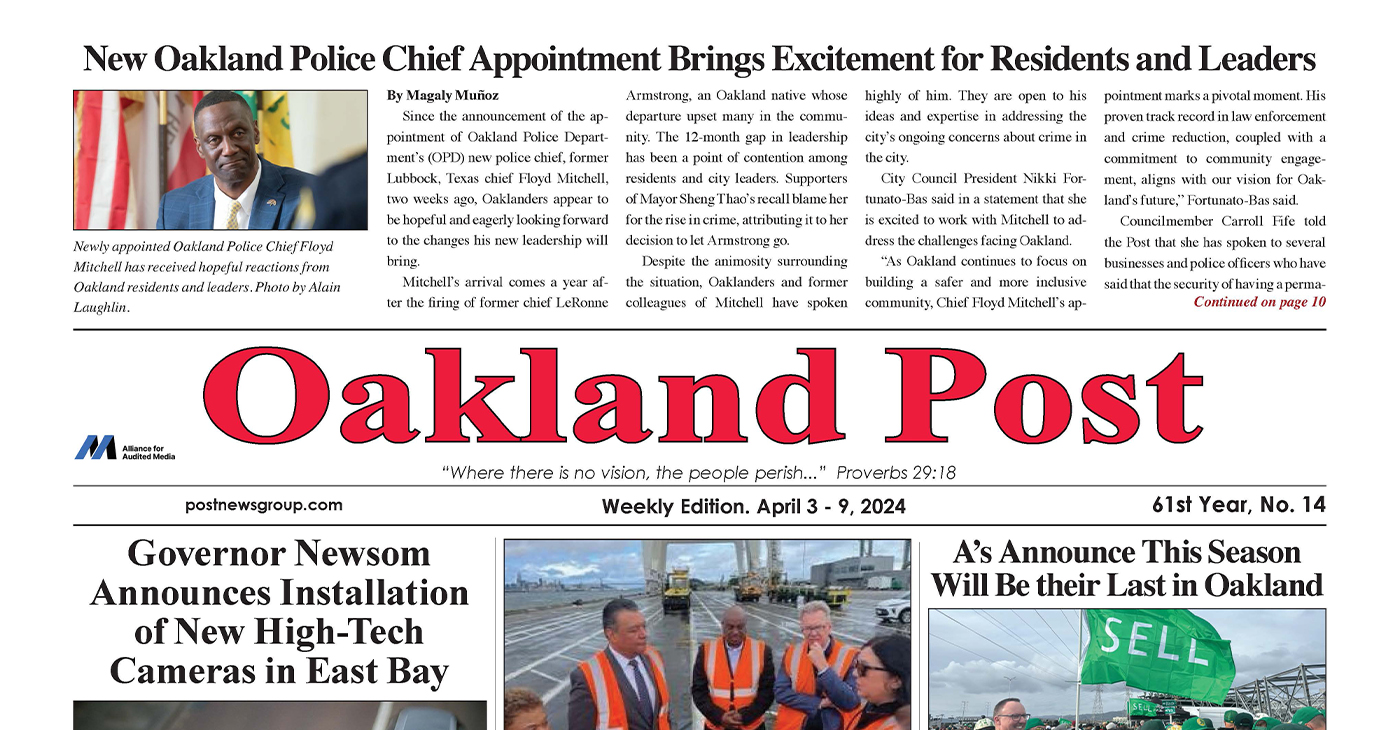Opinion
Opinion: State Needs to Help Maintain, Not Close, Oakland Schools

The Oakland school district is considering closing 24 more public schools. Oakland has already closed 15 schools, even though the city population is growing.
An extensive study of public school closures, conducted by the National Education Policy Center, indicates that closing schools in urban communities does not save money and causes the greatest harm to the lowest income students.
Closures do not save money on buildings, because the district may be forced to give the closed facility to a charter school, and the school to which students are transferred often needs renovation to accommodate the transferring students.
Closing schools disrupts the lives of children and drives more students out of the district, resulting in lower enrollment and further budget problems. A 2012 audit of Washington, D.C.’s closure of 23 schools found that the cost of the closures was $39 million, four times what the district was expected to save.
In Oakland, the school closings are especially unfair. Of the 24 threatened schools, all are in the low-income flatland neighborhoods; zero are in the affluent hill area; and zero are charter schools. The 15 schools that were already closed are also in the lower-income areas. When these facts are raised the hand-wringing begins. “We know these are difficult decisions, but…”
These are not difficult decisions. They are wrong and unnecessary decisions. So, who is making them?
In 2003 the state took over the Oakland school district, a step which has since been condemned by many. The district argued that it did not need a loan because it could borrow from its own construction bonds, a step which had been taken by other districts. At the insistence of then-state Sen. Don Perata, the state imposed a $100 million loan which was three times more than the highest estimate of the district deficit.
The power of the elected school board was removed; a series of state administrators had total authority over the funds with no input from anyone in Oakland. Most of the money was spent on items that had nothing to do with the stated purpose of the takeover — correcting the finances. And, by the end of the takeover period, the district’s finances were in worse shape than before the state took control.
Yet the state continued its power over the district through the non-elected, Bakersfield-based Fiscal Crisis Management and Assistance Team and a state trustee. With all this “help,” the district now owes $40 million, which is more than the highest estimate of what Oakland needed in 2003.
There are other ways that the state makes both the financial and educational situation difficult. The state is in charge of who gets to teach. Its nonelected, nearly invisible Commission on Teacher Credentialing increases bureaucratic requirements, tests and fees almost every year, leading to an artificial teacher shortage, particularly of Latino and African American teachers who are least likely to afford the extra time and money required to jump through the ever-expanding series of hoops. A school with a constantly rotating set of temporary teachers is unlikely to be the first choice of parents.
And then there are the charter school laws, which do not allow a district to control how many charters open within its jurisdiction and will not allow districts to close any of them.
The State of California is the fifth largest economy in the world. It has a super-majority of Democrats in its Legislature and a large budget surplus. Yet for 15 years, it has played the role of hostile mortgage-holder to the Oakland schools.
The State of California needs to rescind the remaining debt, help the district maintain rather than close its community schools, and reform the laws that make quality education for non-affluent Californians impossible. We hope that newly elected State Superintendent of Public Instruction Tony Thurmond will take up that task.
Kitty Kelly Epstein is an education professor and the author of two books about Oakland. This column was first published on Dec. 19 in the San Francisco Chronicle.
Activism
Oakland Post: Week of April 17 – 23, 2024
The printed Weekly Edition of the Oakland Post: Week of April 17 – 23, 2024

To enlarge your view of this issue, use the slider, magnifying glass icon or full page icon in the lower right corner of the browser window. ![]()
Activism
Oakland Post: Week of April 10 – 16, 2024
The printed Weekly Edition of the Oakland Post: Week of April 10 – 16, 2024

To enlarge your view of this issue, use the slider, magnifying glass icon or full page icon in the lower right corner of the browser window. ![]()
Activism
Oakland Post: Week of April 3 – 6, 2024
The printed Weekly Edition of the Oakland Post: Week of April 3 – 6, 2024

To enlarge your view of this issue, use the slider, magnifying glass icon or full page icon in the lower right corner of the browser window. ![]()
-

 Activism4 weeks ago
Activism4 weeks agoOakland Post: Week of March 27 – April 2, 2024
-

 #NNPA BlackPress4 weeks ago
#NNPA BlackPress4 weeks agoCOMMENTARY: D.C. Crime Bill Fails to Address Root Causes of Violence and Incarceration
-

 #NNPA BlackPress4 weeks ago
#NNPA BlackPress4 weeks agoFrom Raids to Revelations: The Dark Turn in Sean ‘Diddy’ Combs’ Saga
-

 #NNPA BlackPress4 weeks ago
#NNPA BlackPress4 weeks agoCOMMENTARY: Lady Day and The Lights!
-

 #NNPA BlackPress4 weeks ago
#NNPA BlackPress4 weeks agoMayor, City Council President React to May 31 Closing of Birmingham-Southern College
-

 #NNPA BlackPress4 weeks ago
#NNPA BlackPress4 weeks agoBaltimore Key Bridge Catastrophe: A City’s Heartbreak and a Nation’s Alarm
-

 #NNPA BlackPress4 weeks ago
#NNPA BlackPress4 weeks agoBaltimore’s Key Bridge Struck by Ship, Collapses into Water
-

 #NNPA BlackPress4 weeks ago
#NNPA BlackPress4 weeks agoBeloved Actor and Activist Louis Cameron Gossett Jr. Dies at 87








































